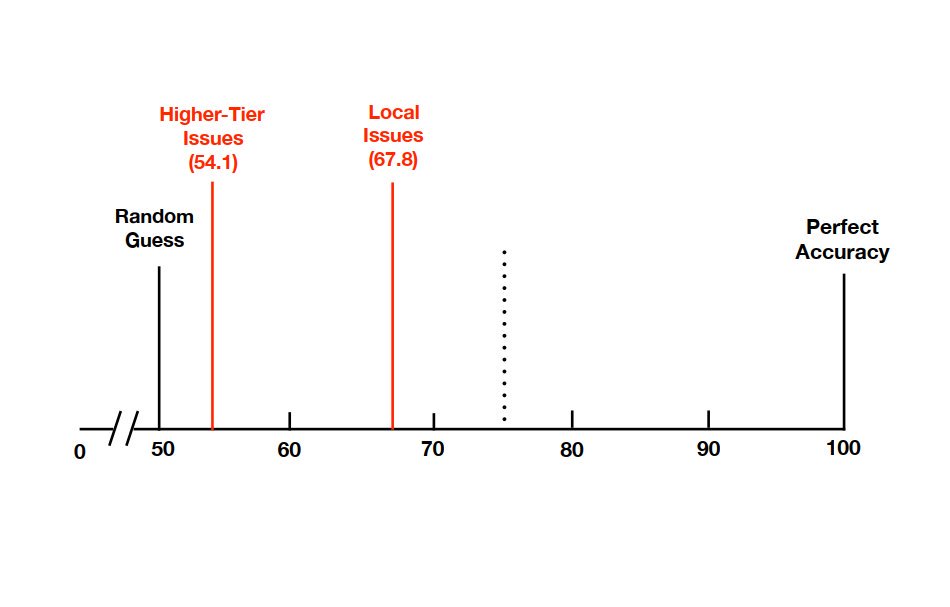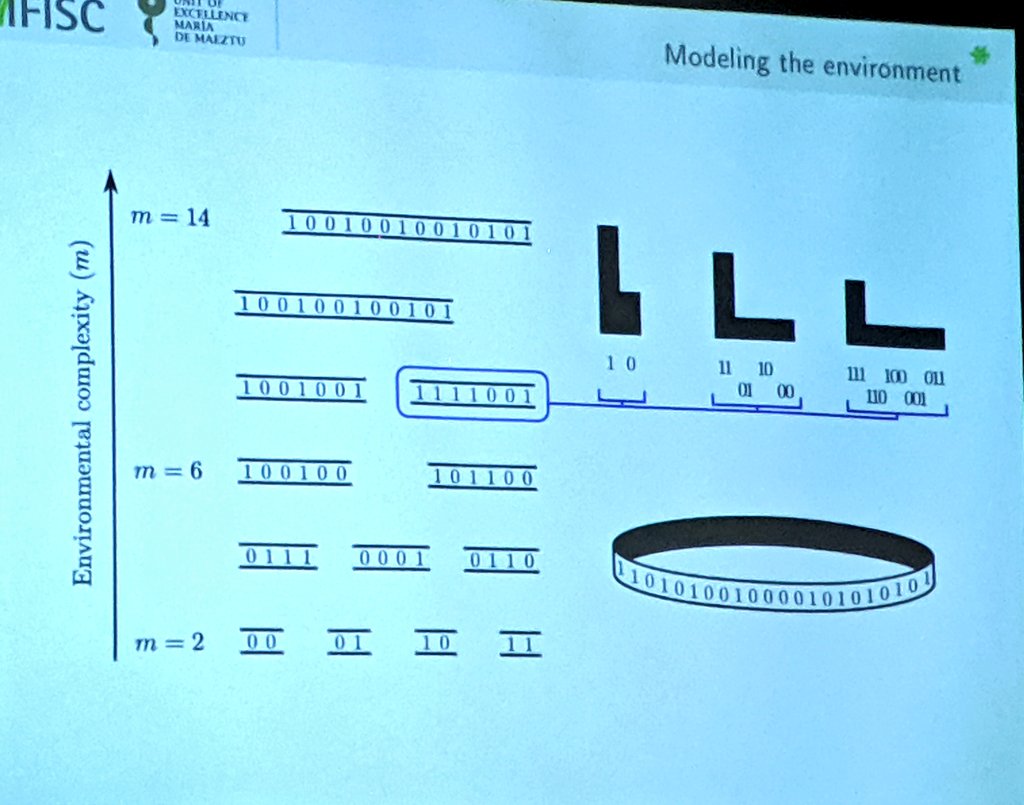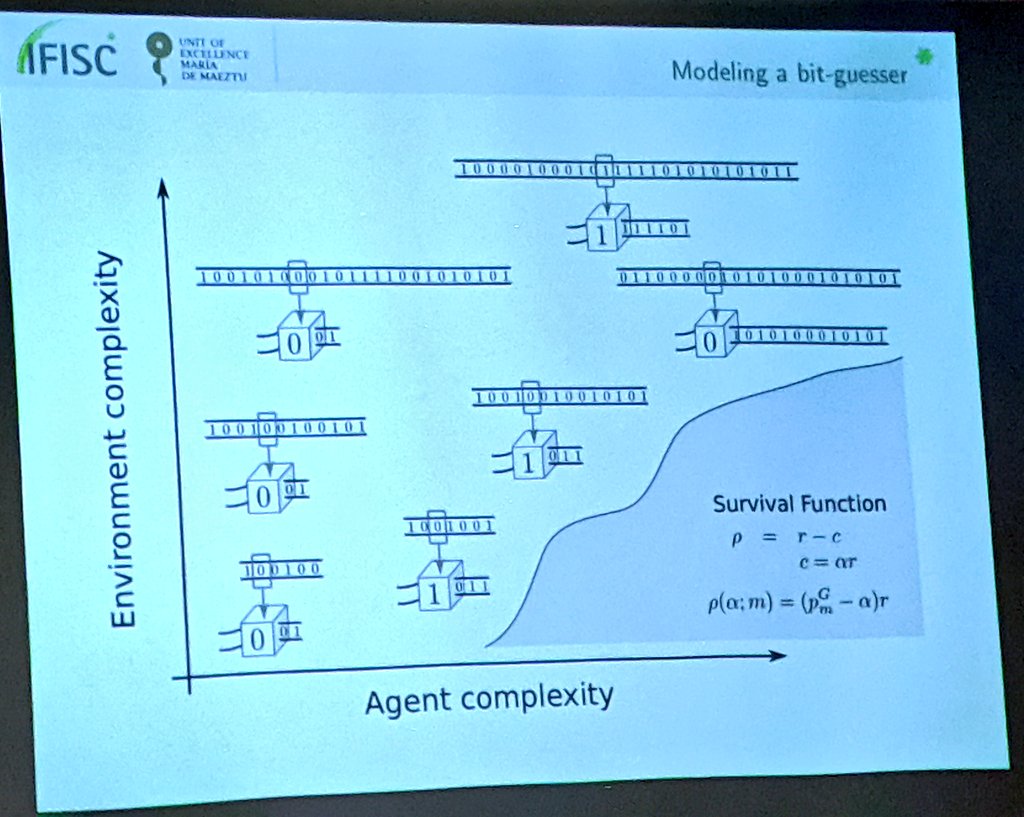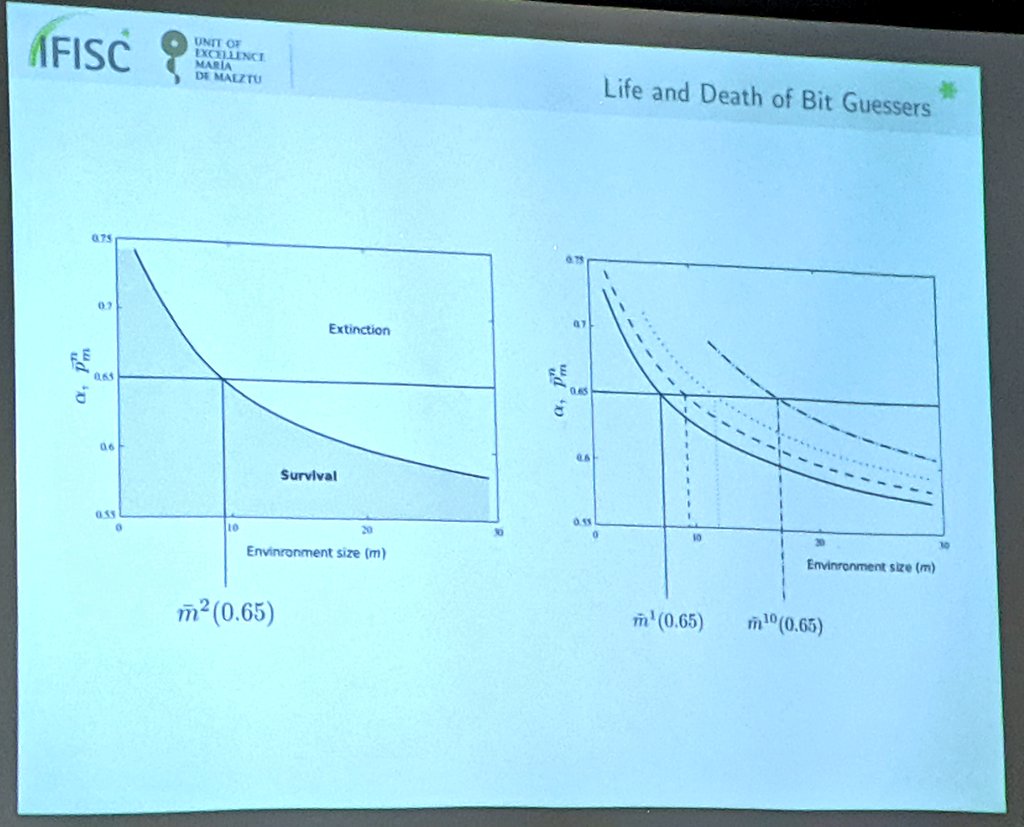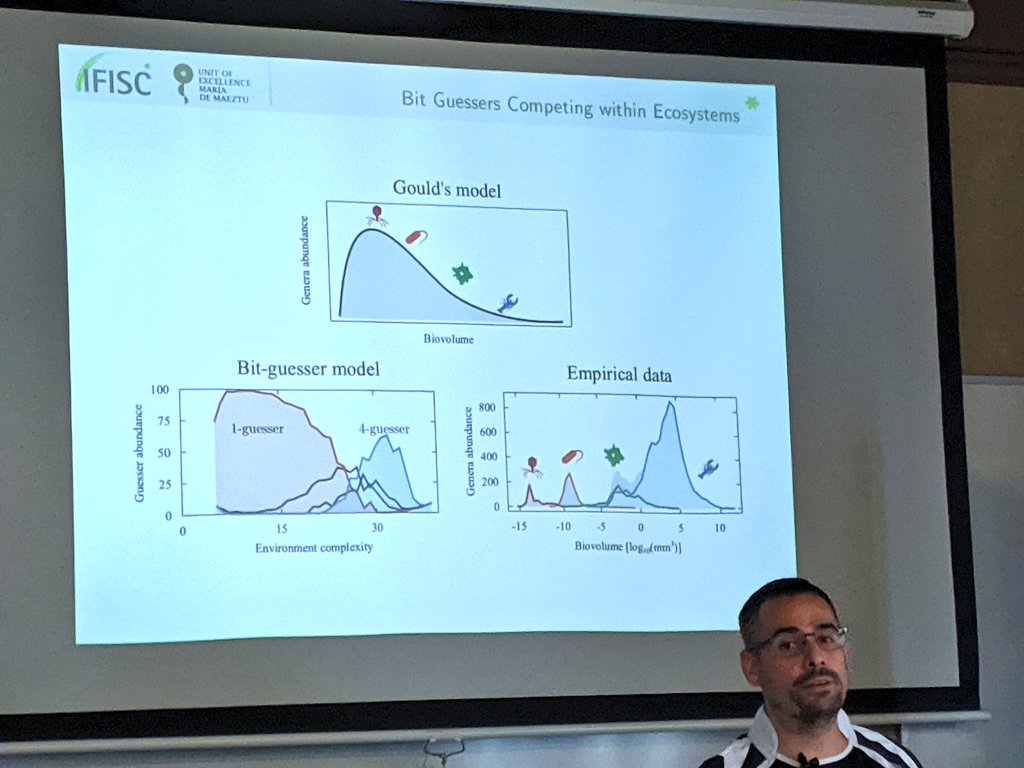No⏰?🇵🇰Politicians know little about what citizens prefer. Better information makes them more responsive, especially towards women.
Lots of⏰? bit.ly/2KyR7vt
Some⏰? See⬇️
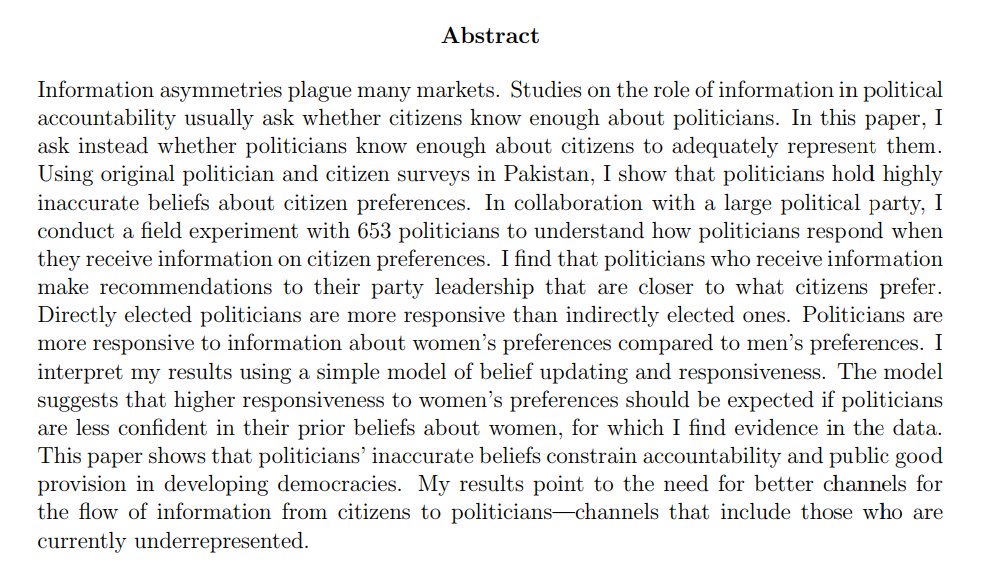
We have excellent evidence on many determinants: corruption, red tape, uninformed voters + others
I explore a new one: info gaps on the politician's side
Q: Do politicians know enough about citizens to represent them?
They might simply not care.
I next ask whether experimentally alleviating the gap affects how politicians act.
Sample: 653 local politicians.
Politician type = directly vs. indirectly elected ➡️ imp. for institutional design
Citizen type = gender & partisanship ➡️ imp. for equity
The reasons are gendered:
(1) They believe they less new information about men
(2) social norms prevent them from acquiring more information about women (cue: my other work)
If info has📉returns, exposure may📉demand.
📢Instead of decreasing demand, treatment increases politicians’ demand for information.
But, only on dimensions they pay less attention to under status-quo
(1) What affects public good provision is a big Q for dev econ. I show: what politicians know about citizens matters!
(2) Even when women are excluded, policy may shift closer to their preferences if politicians are better informed
(3) We think political contact = good for responsiveness. I show more contact (with men) can instead undermine representation.
(4) Information frictions matter in politics (as they do in labor, health, energy)
(1) Better mechanisms for information flow from citizens to politicians—that include the underrepresented
(2) Better representation of underrepresented (new local govt. reform on this!)
(3) CSOs must act when parties don’t do this due to incentives/inertia
Check out more of my research on asadliaqat.com
e.g. my co-authored paper with @_sarahkhan, Ali C and Shandana KM on constraints to women’s turnout: bit.ly/35a9pLe
Thank you for reading🙏
I would💚 feedback!


